13+ Sample Software Support Contract
-
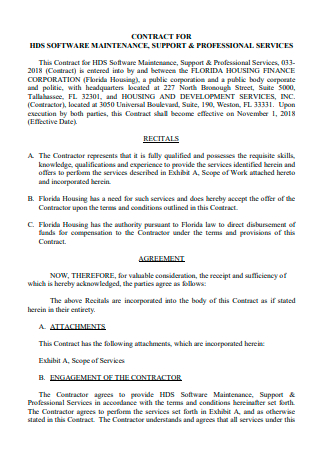
Software Maintenance Support and Professional Contract
download now -
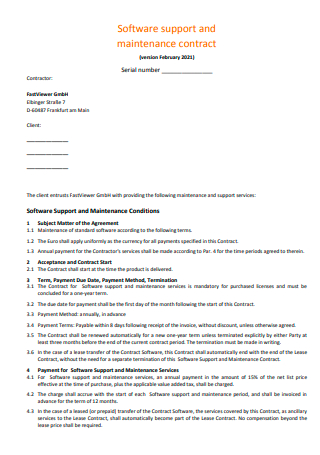
Software Support and Maintenance Contract
download now -
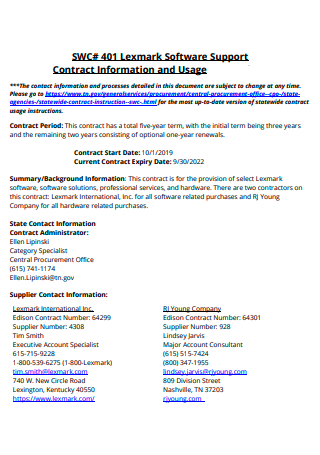
Software Support Contract Information
download now -
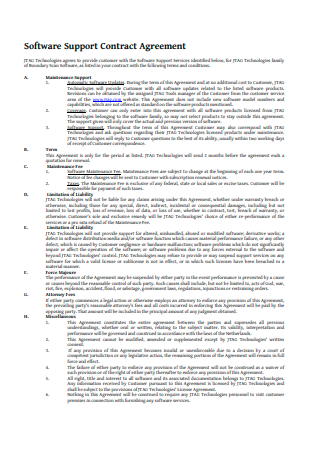
Software Support Contract Agreement
download now -
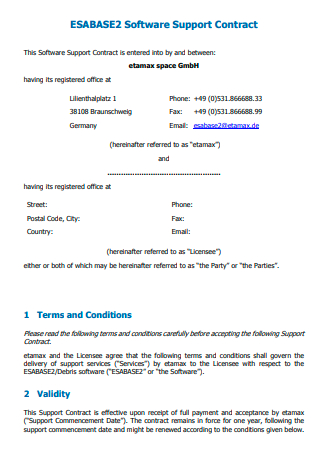
Software Support Contract Example
download now -
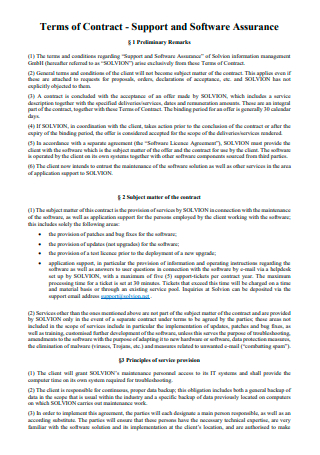
Software Assurance and Support Contract
download now -
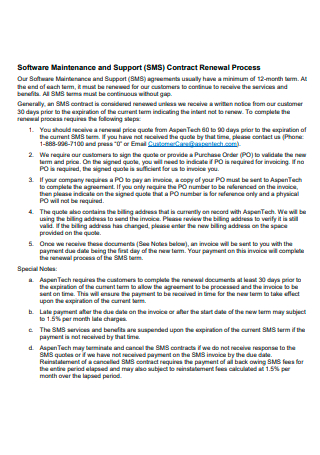
Software Maintenance and Support Contract Renewal Process
download now -
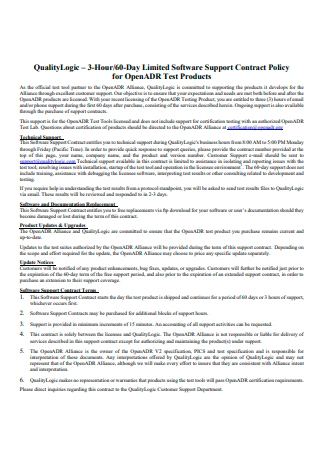
Software Support Contract Policy
download now -
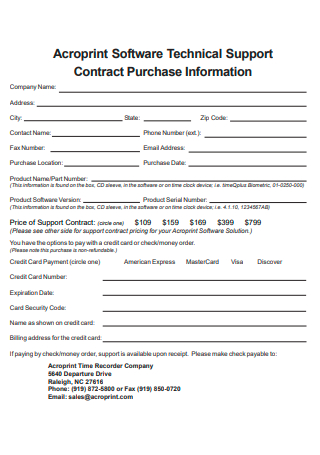
Software Technical Support Contract
download now -
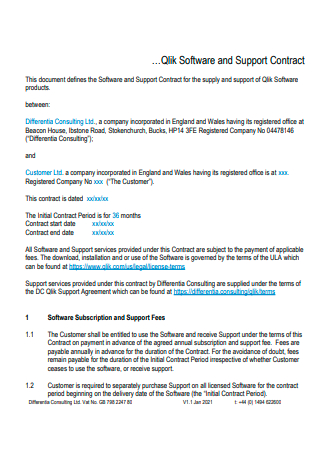
Basic Software Support Contract
download now -
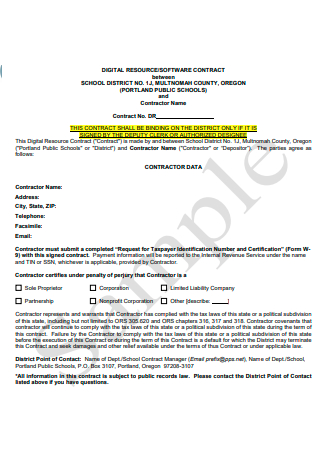
Sample Software Support Contract
download now -
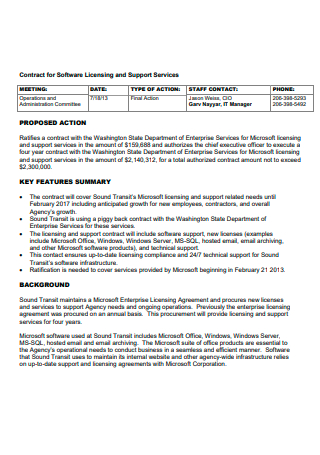
Software Licensing and Support Contract
download now -
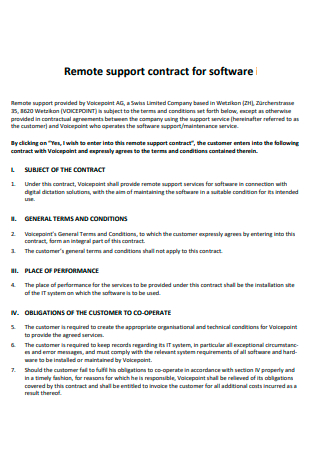
Software Remote Support Contract
download now -
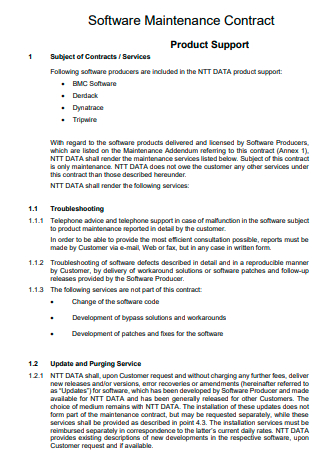
Software Maintenance Product Support Contract
download now
FREE Software Support Contract s to Download
13+ Sample Software Support Contract
What Is a Software Support Contract?
Important Elements of a Software Support Contract
Types of Software Support Services
Different Approaches to Software Maintenance
How to Create a Software Support Contract
FAQs
What comprises software support services?
Why is effective software support crucial?
Can you outsource software support?
What Is a Software Support Contract?
First of all, let’s get familiarized with software support. Essentially, software support refers to a service that is given by a software publisher that provides existing customers with technical product help and guidance. These services are provided on-demand, addressing them only when complicated situations emerge, and may involve installation assistance, ease of usage assistance, or remote troubleshooting assistance. Software support can be dispatched by the product vendor or a third-party software maintenance company.
A software support contract talks about a legal document that is used between entities that provide and receive computer software support. This contract is often created to outline the terms of the deal for software support services that are being given. Typical specifics of the software support contract usually include the customer service provider’s responsibilities to the customer, the customer’s obligations to the service provider, how compensation will be managed, warranty information, and legal liabilities.
Important Elements of a Software Support Contract
Listed below are the common important elements that should be included in writing a software support contract; Keep in mind that a number of factors may add more elements to this contract, such as the type of software that is used by the customer and the kind of company that will provide the support services.
Types of Software Support Services
Listed and discussed below are the different types of software support services that exist.
Different Approaches to Software Maintenance
Listed below are the 3 different types of approaches that can be used during software support or maintenance:
- Scheduled Maintenance – this type of software support approach is best utilized on stable software applications that constantly require regular updates and post-release supervision in order for the software to stay in line with the latest types of technology and to stay ahead of the competition.
- Adaptive Maintenance – this type of software support approach works best when it is used on various types of software and hardware that are expected to work in a dynamic/ever-changing operating environment.
- Perfective Maintenance – this type of software support approach can provide great assistance when it comes to re-engineering, enhancing, and modifying the software for the purpose of fixing any issues that may hinder the system’s optimal performance and functions.
How to Create a Software Support Contract
Here are the necessary steps to be followed whenever you are tasked to create a software support contract:
-
1. Start With the Introductory Elements
This is the first step to follow when writing the software support contract. In this step, start by writing the beginning elements or the introductory elements of the contract. This includes the title, the names of the parties involved in the contract, and the date on which the support contract is being made/drafted.
-
2. State the Contract Duration Terms and the Location of Service
After writing the introductory elements of the software support contract, follow up by writing the duration terms and location of the software support service. The duration term in a software support contract refers to how long the services will be rendered by the support provider, usually clearly indicated by a start and end date. In other cases, it is also indicated if the duration of the contract is an indefinite amount of time. Afterwards, also state the place where the support services will be provided. This is important because different places have different laws regarding support services and this is also done to avoid unnecessary confusion.
-
3. Describe the Type of Service to be Provided
After outlining the duration and the location of the services, proceed to this step. What is necessary here is that the type of software support service that is to be done by the service provider should be described clearly. Providing a clear description of services is important since it reduces any chances of misunderstandings when the contract is already underway and it gives all the parties involved in the contract an idea of what to expect. As stated earlier, types of software support can be software maintenance, product enhancement, etc.
-
4. State the Terms for Compensation
When the type of service is already outlined, follow through with the contract with this step. What should be done here is to state the terms for compensation that is to be given to the support services provider. Take note that there are a number of factors that can affect how compensation is given, which include the taxes, the payment schedule, and any penalties for non-fulfillment or non-performance. The details that need to be included when writing this section include the billing details, the deposit amount (if necessary), the payment schedule, and any terms concerning late payments.
-
5. Include Any Additional/Auxiliary Elements
After detailing the terms for compensation, this step then follows. The elements to be completed in this step here are the support contract’s terms and conditions and any additional elements that may be needed in the contract’s completion. Additional elements that can be included in the contract include a confidentiality clause, an intellectual property clause, an indemnity clause, a liability clause, and a legal expenses clause. Additionally, another element that should also be included in the contract is the termination clause, since it clearly outlines all the situations that can necessitate the termination of the support contract.
-
6. Signing Details
Lastly, describe any details concerning the signing of the software support contract, such as the date that the agreement is going to be signed, and whether or not any witnesses will be present when the contract is going to be signed. Afterwards, when all parties involved are satisfied with the terms being laid out, the contract is then signed and put into motion.
FAQs
What comprises software support services?
Software support services are usually comprised of many things, such as installation of new products, product update installations, migrations for significant software releases, different sorts of proactive or reactive on-site services, and support for bespoke application or infrastructure software. To bring these services to life, a product provider, a consulting business, or third-party software maintainers provide these services to their respective clients.
Why is effective software support crucial?
Software support is very crucial in the post-release phase since the customers of your software expect you to be able to provide answers to their different inquiries, no matter how easy or difficult it may prove to be. Your clients expect you to assist them if they have any difficulties, and if you fail to match these expectations, you will be unable to prevent them from jumping ship to other competitors where they may be able to get better answers to their inquiries.
Can you outsource software support?
Yes, you can also outsource software support to a third party. This approach has the advantage of being substantially less expensive than having an in-house support crew, allowing you to allocate more funds to other aspects of your organization. However, in this instance, you should ensure that the third-party vendor is well-versed in your product. This strategy also has drawbacks because it implies less control and greater supervision concerns. It might be difficult to secure the needed level of help when selecting third-party support providers because the support provider’s management is out of your control.
Having effective software support to customers of your products can be key in retaining them for your future software releases. Little improvements to the way you provide support can even go a long way. And providing the best possible software support to your clients can be made possible in a very streamlined way through entering a software support contract, which is helpful since it also protects all your interests should a problem arise. In this article, various blank templates of a software support contract can be obtained should you need any help in making one.
